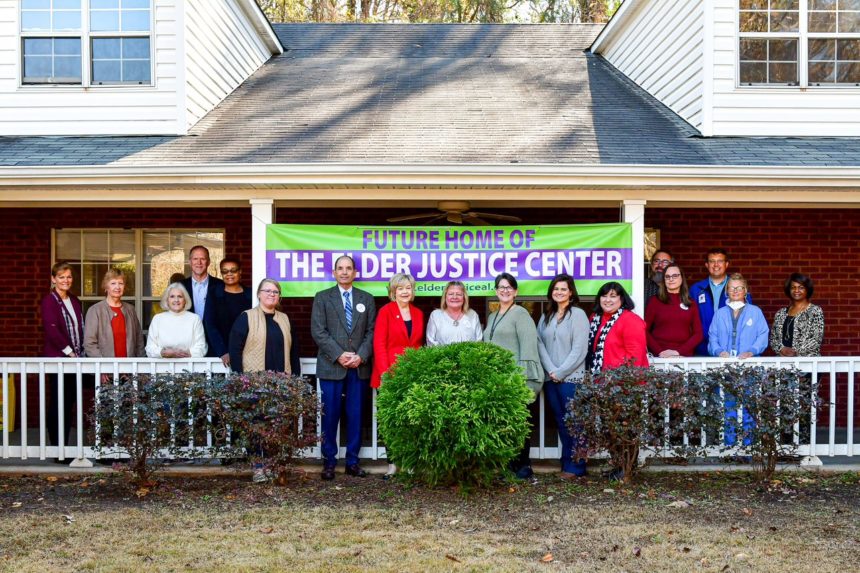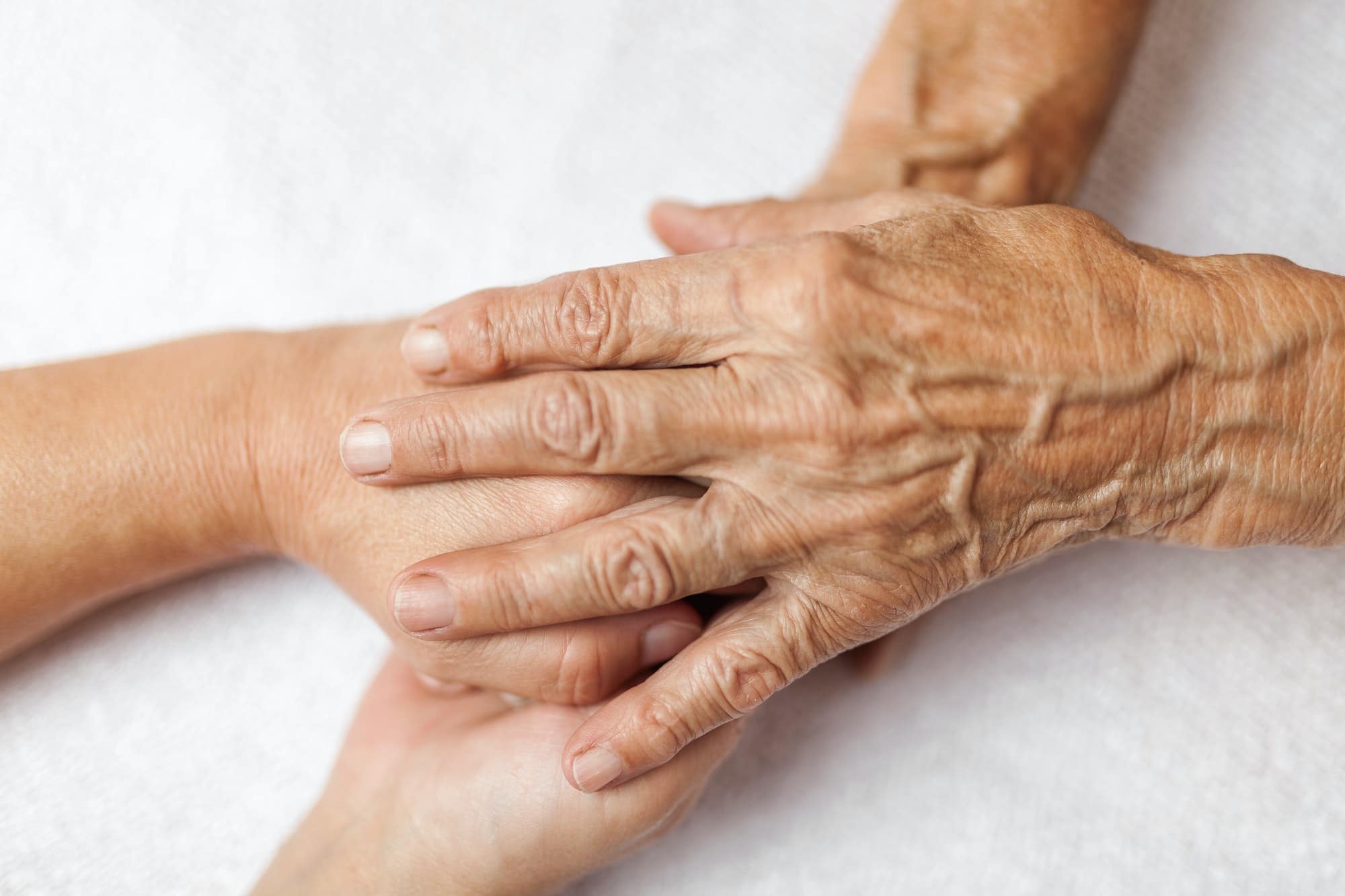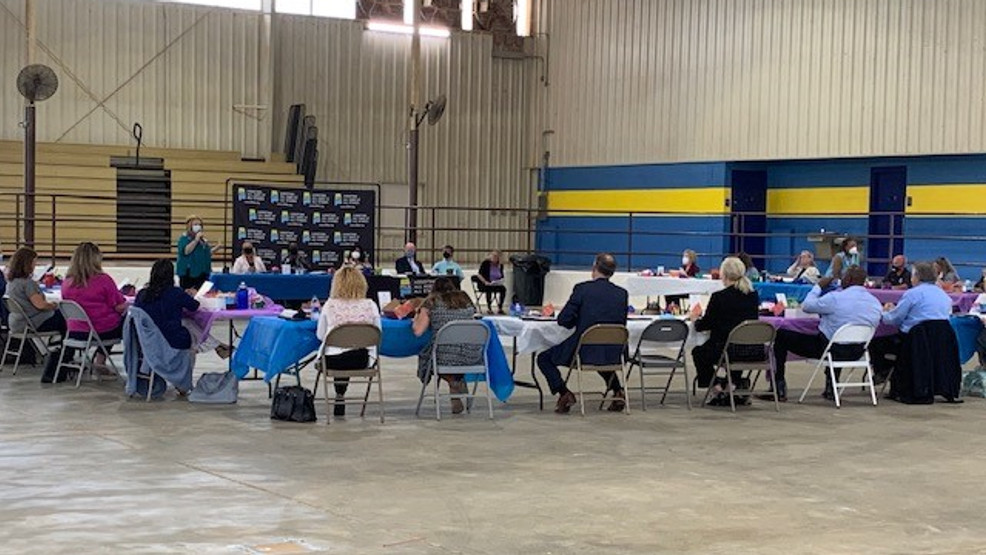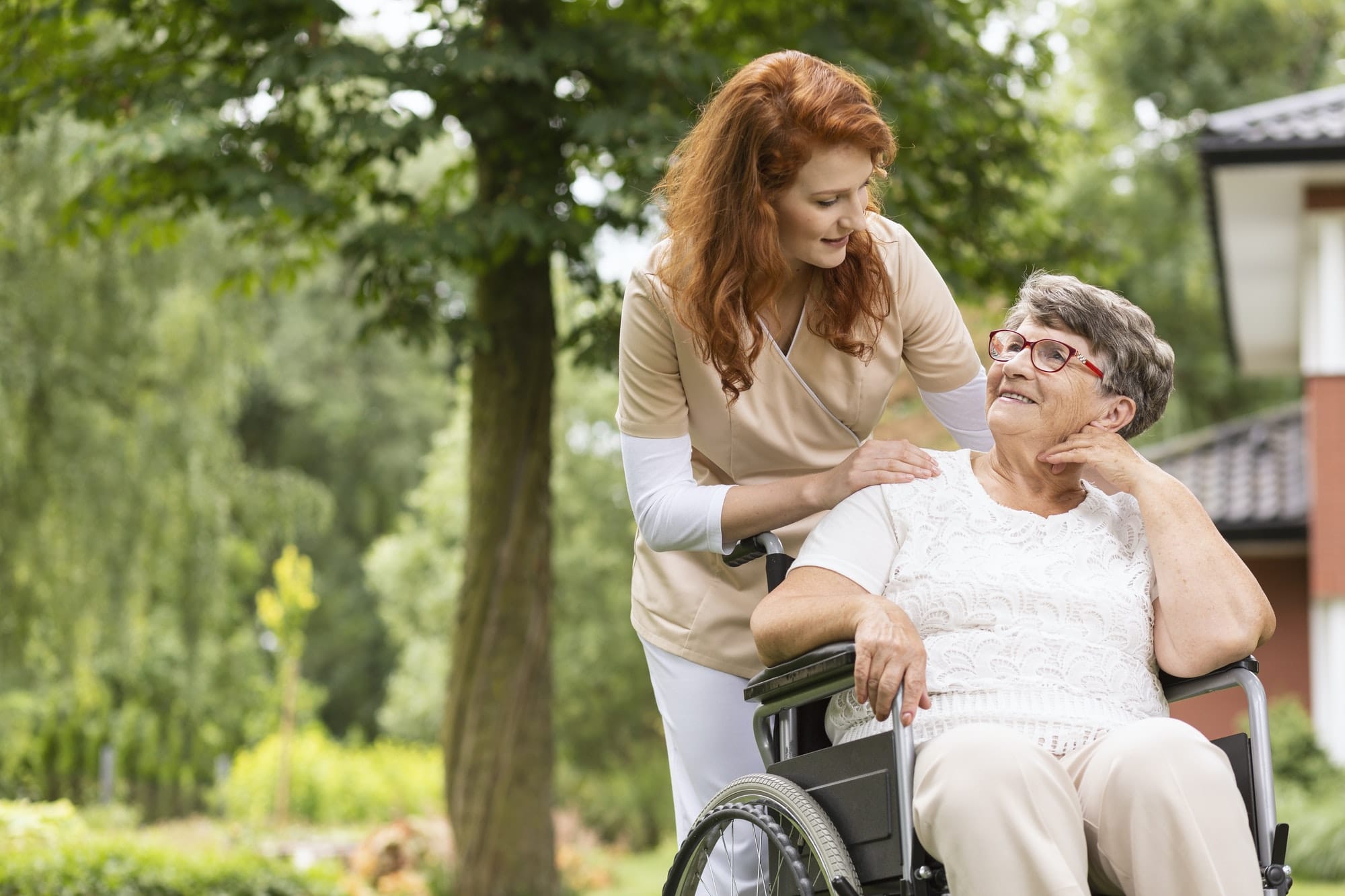
State’s first elder abuse center to open in Shelby Co.
See the article written about elderjusticeal.org! See the Article here!


See the article written about elderjusticeal.org! See the Article here!

Middle Alabama Area Agency on Aging (M4A) partners with other key stakeholders to protect older adults from mistreatment M4A, in partnership with several key stakeholders,

SHELBY COUNTY, (Ala) — An elder justice alliance just launched in Shelby County. It’s designed to better detect and prevent elder abuse. This alliance includes

SHELBY COUNTY, Ala. (WBRC) – Shelby County leaders are cracking down on elder abuse and officially launched a justice alliance in response. DHR says upwards

Media: Please contact Robyn James at 205-670-5770 or by email rjames@m4a.org Middle Alabama Area Agency on Aging (M4A), Shelby County DHR and Key Stakeholders Partner

Growing Older at Home These are common issues for older people. You may share the often-heard wish — “I want to stay in my own

Ready-to-Publish Articles These “evergreen” articles can be used in your publications and websites. Where possible, please credit the Administration for Community Living (and include a

n4a Publications Recent Publications Social Engagement for Older Adults, People with Disabilities and Caregivers During COVID-19: Results from
Media: Please contact Robyn James at 205-670-5770 or by email rjames@m4a.org
M4A, in partnership with Shelby County Department of Human Resources (DHR), elected officials, law enforcement, social service providers, and other advocacy groups, will officially launch the Elder Justice Alliance of Shelby County on September 1, 2021 in the City of Columbiana. The purpose of the Elder Justice Alliance is to bring together a network of multi-disciplinary agencies and organizations as one strong force to increase coordination and collaboration among responders, service providers, and other relevant stakeholders; improve the prevention, detection, reporting of, and response to elder mistreatment; and deter elder abuse through community education, professional training, and support to older residents and caregivers.
M4A’s new 501c3 nonprofit organization, 4 ALL Foundation, has created the Center for Elder Justice & Advocacy located in Shelby County. The new center will serve as Alabama’s Elder Justice Resource Center, provide direct support and assistance to older adults and their caregivers across the greater Birmingham region, provide extensive training to professionals and members of our local communities, and eventually house an Adult & Caregiver Respite Program, and a Temporary Elder Emergency Shelter.
“Our aging society is like a building. If the foundation and structure are strong, older adults can live their lives free from harm and worry. If the foundation is weak or the support beams unstable, then the people inside the building are not secure. Our social structure is not as strong as it should be, especially for older adults. We need social supports and reinforcements to ensure that we can all participate in society and live free of neglect and abuse as we age”, said Carolyn Fortner, M4A Executive Director.
“The new Elder Justice Alliance and Center will be a trusted resource that seeks to improve long-term health, in addition to social and functional status. It also will enhance autonomy and independence, while mitigating the risks of recurrent abuse so vulnerable adults can remain safe and independent in their local communities as they age,” said Kim Mashego, Shelby County DHR Director.
As a society, we do a lot to prepare people to become parents of children but little to prepare children to care for parents as they age, and the Elder Justice Alliance will work towards one common goal to help prepare families to provide care so our older residents can remain safe, independent, and unharmed as they age. We encourage the media to attend this event.
WHEN: September 1, 2021 11:30 am – 1:30 pm
WHERE: Exhibition Center, 86 Argo Road, Columbiana, Alabama
SHELBY COUNTY, Ala. (WBRC) – Shelby County leaders are cracking down on elder abuse and officially launched a justice alliance in response.
DHR says upwards of 1,300 reports of elder abuse come in each year from across the state. Unfortunately, many of those reports are from Shelby County.
“Shelby County alone had nearly 300 reports in just one year,” said Star Pope, Adult Protective Service Supervisor for Shelby County DHR. “Of those, over 150 were found to be indicated, which for DHR means guilty or true.”
Elder abuse reports that came across Star Pope’s desk as the Adult Protective Service Supervisor for DHR in Shelby County. She’s concerned that number may have just scratched the surface.
“One out of every 24 cases is reported, so what that means is every time one report comes in, 23 have gone unreported,” said Pope.
DHR partnered with the Middle Alabama Area Agency on Aging to raise awareness and work together to prevent abuse. The agencies officially launched the Elder Justice Alliance Wednesday during a work session along with 30 county entities including first responders, law enforcement, local minority advocacy groups, and county government officials.
“We will provide a lot of direct services to victims and those who are at greatest risk victimization and will provide professional and community training for education.” said Robyn James, Director of Marketing and Innovation Middle Alabama Area Agency on Aging.
The justice alliance is working to also purchase a facility in Shelby County so all the resources are in one place.
To find the original article Click Here
SHELBY COUNTY, (Ala) — An elder justice alliance just launched in Shelby County. It’s designed to better detect and prevent elder abuse.
This alliance includes DHR, law enforcement, social services and advocacy groups
“With COVID we’ve seen a large increase in number of potential elder mistreatment cases,” Robyn James with Middle Alabama Area Agency on Aging said.
Last year, Shelby county DHR received hundreds of reports to adult protective services.
“What we see in Shelby county is approximately 266 reports per year that come in, of those reports we see about 150 of those are still living in the home,” Adult Protective Services Supervisor Star Pope said.
Pope investigates many of those cases.
“The reports are typically abuse neglect and financial exploitation,” Pope said, “what’s so sad is that the majority are family members that are perpetrating on these individuals.”
The goal of the Elder Justice Alliance is to employ a network of agencies as one strong force for the elderly.
Organizations work to prevent, detect and respond to elder mistreatment and abuse.
“It’s important to share resources, to share information, there’s always strength in numbers,” James said.
James says the group plans to meet monthly, share cases and provide training.
“The impact is really a lot greater to help protect our older residents so that they can age gracely with dignity in our communities,” she said.
The group would like to purchase a building in Montevallo to house everything under one roof and to also act as a shelter for elderly victims.
To find the original article Click Here
M4A, in partnership with several key stakeholders, has brought together a network of multi-disciplinary agencies and organizations as one strong force to create the Elder Justice Alliance of Shelby County. The mission of the Elder Justice Alliance is to mobilize communities to prevent and properly respond to adult mistreatment so people can live with dignity, purpose, and peace as they age. The Alliance will increase coordination and collaboration among responders, law enforcement, service providers, and other relevant stakeholders; improve the prevention, detection, reporting of, and response to elder mistreatment; and deter elder abuse through community education, professional training, and support to older residents and caregivers.
M4A’s new nonprofit organization, 4 ALL Foundation, will oversee the Alliance as well as work with stakeholders to develop an Adult & Caregiver Respite Program and a Temporary Elder Emergency Shelter in Montevallo. This facility will also provide direct support and assistance to older adults and their caregivers and provide extensive training to professionals and the general public.
An Open House will be held November 30, 2021 (Giving Tuesday) at the new location in Montevallo. Anyone interested to learn more or to take a tour can do so between 11:00 am and 2:00 pm.
As a society, much is done to prepare people to become parents of children but little is done to prepare children to become caregivers of aging parents; the respite center and temporary shelter will help support families who care for aging loved ones so that the caregiver and loved one can better care for themselves and so that all Alabamians can age with dignity, security, and independence.
WHAT: CENTER FOR ELDER JUSTICE & ADVOCACY OPEN HOUSE EVENT
WHEN: NOVEMBER 30, 2021 – 11:00 am – 2:00 pm
WHERE: KNOWLWOOD ASSISTED LIVING FACILITY BUILDING – 4804 HIGHWAY 25, MONTEVALLO, AL 35115
See the article written about elderjusticeal.org!
These are common issues for older people. You may share the often-heard wish — “I want to stay in my own home!” The good news is that with the right help you might be able to do just that. Staying in your own home as you get older is called “aging in place.” This article contains suggestions to help you find the help you need to continue to live independently.
 Planning ahead is hard because you never know how your needs might change. The first step is to think about the kinds of help you might want in the near future. Maybe you live alone, so there is no one living in your home who is available to help you. Maybe you don’t need help right now, but you live with a spouse or family member who does. Everyone has a different situation.
Planning ahead is hard because you never know how your needs might change. The first step is to think about the kinds of help you might want in the near future. Maybe you live alone, so there is no one living in your home who is available to help you. Maybe you don’t need help right now, but you live with a spouse or family member who does. Everyone has a different situation.
One way to begin planning is to look at any illnesses, like diabetes or emphysema, that you or your spouse might have. Talk with your doctor about how these health problems could make it hard for someone to get around or take care of him- or herself in the future. If you’re a caregiver for an older adult, learn how you can get them the support they need to stay in their own home.

You can get almost any type of help you want in your home — often for a cost. You can get more information on many of the services listed here from your local Area Agency on Aging, local and state offices on aging or social services, tribal organization, or nearby senior center.
Personal care. Is bathing, washing your hair, or dressing getting harder to do? Maybe a relative or friend could help. Or, you could hire a trained aide for a short time each day.
Household chores. Do you need help with chores like housecleaning, yard work, grocery shopping, or laundry? Some grocery stores and drug stores will take your order over the phone and bring the items to your home. There are cleaning and yard services you can hire, or maybe someone you know has a housekeeper or gardener to suggest. Some housekeepers will help with laundry. Some drycleaners will pick up and deliver your clothes.
Meals. Worried that you might not be eating nutritious meals or tired of eating alone? Sometimes you could share cooking with a friend or have a potluck dinner with a group of friends. Find out if meals are served at a nearby senior center or house of worship. Eating out may give you a chance to visit with others. Is it hard for you to get out? Ask someone to bring you a healthy meal a few times a week. Meal delivery programs bring hot meals into your home; some of these programs are free or low-cost.
Money management. Do you worry about paying bills late or not at all? Are health insurance forms confusing? Maybe you can get help with these tasks. Ask a trusted relative to lend a hand. Volunteers, financial counselors, or geriatric care managers can also help. Just make sure you get the referral from a trustworthy source, like your local Area Agency on Aging. If you use a computer, you could pay your bills online. Check with your bank about this option. Some people have regular bills, like utilities and rent or mortgage, paid automatically from their checking account.
Be careful to avoid money scams. Never give your Social Security number, bank or credit card numbers, or other sensitive information to someone on the phone (unless you placed the call) or in response to an email. Always check all bills, including utility bills, for charges you do not recognize.
Even though you might not need it now, think about giving someone you trust permission to discuss your bills with creditors or your Social Security or Medicare benefits with those agencies. Learn more about legal and financial planning for older adults.
Health care. Do you forget to take your medicine? There are devices available to remind you when it is time for your next dose. Special pill boxes allow you or someone else to set out your pills for an entire week. Have you just gotten out of the hospital and still need nursing care at home for a short time? The hospital discharge planner can help you make arrangements, and Medicare might pay for a home health aide to come to your home.
If you can’t remember what the doctor told you to do, try to have someone go to your doctor visits with you. Ask them to write down everything you are supposed to do or, if you are by yourself, ask the doctor to put all recommendations in writing.
If staying in your home is important to you, you may still have concerns about safety, getting around, or other activities of daily life. Find suggestions below to help you think about some of these worries.
Getting around — at home and in town. Are you having trouble walking? Perhaps a walker would help. If you need more, think about getting an electric chair or scooter. These are sometimes covered by Medicare. Do you need someone to go with you to the doctor or shopping? Volunteer escort services may be available. If you are no longer driving a car, find out if there are free or low-cost public transportation and taxis in your area. Maybe a relative, friend, or neighbor would take you along when they go on errands or do yours for you. To learn about resources in your community, contact Eldercare Locator at 800-677-1116 (toll-free) or https://eldercare.acl.gov.
Finding activities and friends. Are you bored staying at home? Your local senior center offers a variety of activities. You might see friends there and meet new people too. Is it hard for you to leave your home? Maybe you would enjoy visits from someone. Volunteers are sometimes available to stop by or call once a week. They can just keep you company, or you can talk about any problems you are having. Call your local Area Agency on Aging to see if they are available near you.
Safety concerns. Are you worried about crime in your neighborhood, physical abuse, or losing money as a result of a scam? Talk to the staff at your local Area Agency on Aging. If you live alone, are you afraid of becoming sick with no one around to help? You might want to get an emergency alert system. You just push a special button that you wear, and emergency medical personnel are called. There is typically a monthly fee for this service.
Housing concerns. Would a few changes make your home easier and safer to live in? Think about things like a ramp at the front door, grab bars in the tub or shower, nonskid floors, more comfortable handles on doors or faucets, and better insulation. Sound expensive? You might be able to get help paying for these changes. Check with your local Area Agency on Aging, state housing finance agency, welfare department, community development groups, or the federal government.
Getting help during the day. Do you need care but live with someone who can’t stay with you during the day? For example, maybe they work. Adult day care outside the home is sometimes available for older people who need help caring for themselves. The day care center can pick you up and bring you home. If your caretaker needs to get away overnight, there are places that provide temporary respite care.
Here are some resources to start with:
Reach out to people you know. Family, friends, and neighbors are the biggest source of help for many older people. Talk with those close to you about the best way to get what you need. If you are physically able, think about trading services with a friend or neighbor. One could do the grocery shopping, and the other could cook dinner, for example.
Learn about community and local government resources. Learn about the services in your community. Health care providers and social workers may have suggestions. The local Area Agency on Aging, local and state offices on aging or social services, and your tribal organization may have lists of services. If you belong to a religious group, talk with the clergy, or check with its local office about any senior services they offer.
Talk to geriatric care managers. These specially trained professionals can help find resources to make your daily life easier. They will work with you to form a long-term care plan and find the services you need. Geriatric care managers can be helpful when family members live far apart. Learn more about geriatric care managers.
Look into Federal Government sources. The federal government offers many resources for seniors. Longtermcare.gov, from the Administration for Community Living, is a good place to start.
An important part of planning is thinking about how you are going to pay for the help you need. Some things you want may cost a lot. Others may be free. Some might be covered by Medicare or other health insurance. Some may not. Check with your insurance provider(s). It’s possible that paying for a few services out of pocket could cost less than moving into an independent living, assisted living, or long-term care facility. And you will have your wish of still living on your own. Resources like Benefits.gov and BenefitsCheckUp® can help you find out about possible benefits you might qualify for.
Are you eligible for benefits from the U.S. Department of Veterans Affairs (VA)? The VA sometimes provides medical care in your home. In some areas, they offer homemaker/ home health aide services, adult day health care, and hospice. To learn more, visit www.va.gov, call the VA Health Care Benefits number, 877-222-8387 (toll-free), or contact the VA medical center nearest you.
Eldercare Locator
800-677-1116 (toll-free)
eldercarelocator@n4a.org
https://eldercare.acl.gov
Centers for Medicare & Medicaid Services
800-633-4227 (toll-free)
877-486-2048 (TTY/toll-free)
https://www.cms.gov/
www.medicare.gov
National Association of Area Agencies on Aging
202-872-0888
info@n4a.org
www.n4a.org
Department of Housing and Urban Development
202-708-1112
202-708-1455 (TTY)
https://www.hud.gov/
Low Income Home Energy Assistance Program
National Energy Assistance Referral Hotline (NEAR)
866-674-6327 (toll-free)
energyassistance@ncat.org
https://liheapch.acf.hhs.gov/help
National Resource Center on Supportive Housing and Home Modifications
213-740-1364
homemods@usc.edu
www.homemods.org
RetireGuide
Downsizing for Retirement
Aging in Place
This content is provided by the NIH National Institute on Aging (NIA). NIA scientists and other experts review this content to ensure it is accurate and up to date.
Content reviewed: May 01, 2017
To find the original article Click Here
These “evergreen” articles can be used in your publications and websites. Where possible, please credit the Administration for Community Living (and include a link back to ACL.gov!)
| Topic | Title | Download |
| Caregivers | Caring for YOUR Nutrition by ACL’s National Nutritionist Judy Simon | PDF (241KB) |
| Caregivers | Feeding Your Loved One: Tips for Caregivers by ACL’s National Nutritionist Judy Simon | PDF (342KB) |
| Assistive Technology | Assistive Technology: Tools to improve the everyday | Word (27KB) |
| Staying Engaged | Engage Virtually: Tips for Keeping Connected While Apart | Word (33KB) |
| Falls Prevention | Improvements for Independence: Modifications designed to prevent falls | Word (27KB) |
| Falls Prevention | Taking Steps to Prevent Falls | Word (31KB) |
| Staying Engaged | Giving to the Next Generation | Word (23KB) |
| Medication Safety | Prescription for a Healthy Holiday: Tips to safeguard your medicines | Word (23KB) |
| Long-Term Care | Why Everyone Should Plan for Long-Term Care | Word (29KB) |
| Emergency Preparedness | Preparing an Emergency Plan for Your Unique Needs | Word (47KB) |
| Civil Rights | Knowledge is Power: Understanding the Rights of Nursing Home Residents | Word (101KB) |
| Medicare Fraud | Protect, Detect, and Report: Three steps to guard against Medicare fraud | Word (25KB) |
| Medicare Fraud | Beware of a Growing Medicare Scam: “Free Genetic Testing” | Word (28KB) |
| Medicare Enrollment | Medicare Open Enrollment 101 – Know Your Options and Get Free Help | Word (24KB) |
| Title | Download |
| Administration for Community Living – An overview | Word (140KB) |
| Community Living: What it is, how ACL supports it. (Infographic)
Download for printing in two sizes, with graphics that reflect city, suburban, and rural communities. |
(PDF) |
| ACL’s Commitment: Community Living for All | PDF (69KB) |
| Centers for Independent Living Make Community Living Possible (infographic) | PDF (1136KB) |
| About the Administration on Aging | PDF (468KB) |
| Title | Download |
| State Councils on Development Disabilities | PDF (407KB) |
| Help America Vote Act | PDF (463KB) |
| Protection and Advocacy Systems | PDF (458KB) |
| President’s Committee for People with Intellectual Disabilities | PDF (464KB) |
| Projects of National Significance | PDF (475KB) |
| University Centers for Excellence in Developmental Disabilities Education, Research and Service | PDF (432KB) |
| Aging and Disability Resource Centers in a No Wrong Door System | PDF (652KB) |
| Alzheimer’s Disease Supportive Services Program (ADSSP) | PDF (414KB) |
| American Indian, Alaska Native, and Native Hawaiian Program | PDF (212KB) |
| LifeSpan Respite Care Program | PDF (226KB) |
| Long Term Care Ombudsman | PDF (210KB) |
| National Education and Resource Center on Women and Retirement Planning | PDF (300KB) |
| Nutrition Program Infographics (2019 Nutrition Month) | |
| Older Americans Act Nutrition Programs | PDF (590KB) |
| Older Adult Behavioral Health | PDF (177KB) |
| Pension Counseling and Information Projects | PDF (228KB) |
| Protecting America’s Seniors: The Elder Abuse Prevention Interventions Program | PDF (296KB) |
| Fact Sheet Title | Download |
| 10 Warning Signs Your Older Family Member May Need Help | PDF (188KB) |
| A Talk With An Elder Driver | PDF (249KB) |
| Adult Day Care | PDF (271KB) |
| Alzheimer’s Disease | PDF (252KB) |
| Assisted Living | PDF (318KB) |
| Caring for Someone with Developmental Disabilities | PDF (294KB) |
| Challenges of Global Aging | PDF (280KB) |
| Communicating Better with Health Professionals | PDF (295KB) |
| Elder Rights: Safeguards for the Most Vulnerable Among Us Fact Sheets | PDF (270KB) |
| Face the Facts: Topics to Discuss Now with Your Aging Parents | PDF (321KB) |
| Government Housing Assistance | PDF (275KB) |
| Home Health Care | PDF (260KB) |
| Home Modifications | PDF (307KB) |
| Hospice Care | PDF (252KB) |
| Medicines and You: A Guide for Older Adults | PDF (339KB) |
| HIV: Know the RISKS. Get the FACTS | PDF (237KB) |
| Taking Care of Yourself | PDF (276KB) |
| Working Caregivers Finding a Balance | PDF (293KB) |
Healthy Living Tips provide information on a range of issues often faced by older adults and their caregivers.
| Tip Title | Download Print Version |
| Caregiver Survival Tips | PDF (681KB) |
| Family Caregivers and Driving Retirement: Tips for Planning Ahead | PDF (417KB) |
| Family Caregivers and Transportation: A Few Survival Tips | PDF (847KB) |
| Get Set for a Healthy Summer | PDF (621KB) |
| How Do You Know When It’s Time to Give Up the Keys? | PDF (612KB) |
| Stay Safe on the Road: Tips for Older Drivers | PDF (355KB) |
| Staying Healthy During the Winter | PDF (852KB) |
| Transportation Choices to Keep You Mobile | PDF (792KB) |
| Publication Title | Download |
| OAA Report to Congress: 2015 | DOCX (283KB) |
| AoA Annual Report: 2013 | PDF (712KB) |
| AoA Annual Report: 2012 | PDF (667KB) |
| AoA Annual Report: 2011 | PDF (1.01MB) |
| AoA Annual Report: 2010 | PDF (646KB) |
| AoA Annual Report: 2009 | PDF (554KB) |
| Older Americans 2012: Key Indicators of Well-Being | Available at AgingStats.gov |
| AIDD Biennial Report to Congress: FY 2009–FY 2010 | PDF (544KB) |
| HAVA Report to Congress: FY 2009–FY 2010 | PDF (140KB) |
Last modified on 12/04/2020
To find the original article Click Here
(1).png)
If not otherwise noted, these materials can be ordered via the Eldercare Locator Store.
Additional Publications
To find the original article Click Here